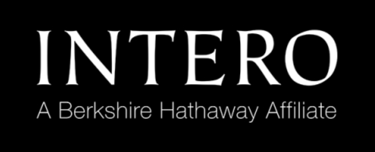Initial Consultation
The selling journey begins with a consultation where you meet with an agent (or a few) to discuss your goals and timeline.
The agent typically will have a comparative market analysis (CMA) to show how your home may be valued in the current market and recommend a pricing strategy.
Things to consider about the agent:
Do they listen closely to your goals and priorities?
Are they knowledgeable about your neighborhood and recent market activity?
Is the pricing strategy clear (not just a promise of the highest price)?
Is the marketing strategy specific and well thought out?
Do you feel comfortable with their communication style and responsiveness?
Are they pushy to get you to sign the listing agreement?
1
2
Listing Prep
Just before going to market, most homes benefit from some level of preparation—this could include cleaning, decluttering, small repairs, fresh paint, and professional staging. The goal is to make a strong first impression and help buyers see the full potential of the space.
Things to consider about the agent:
Do they provide clear, specific recommendations (repairs, updates, or staging) tailored to your home?
Are their suggestions realistic for your budget and timeline?
Do they explain the return on investment for suggested improvements?
Are they focused on highlighting your home’s strengths, not just pointing out flaws?
Do they have trusted contractors, cleaners, or stagers that they coordinate to get things done quickly.
Once your home is ready, the agent will create a listing and launch a marketing plan to attract buyers. This often includes professional photography, online exposure, open houses, and outreach to their buyer network. The goal is to maximize visibility and generate strong interest before and soon after coming to market.
Things to consider about the agent:
Do they use high-quality professional photos, video, and virtual tours?
How broad is their marketing plan (MLS, online platforms, social media, direct outreach, website)?
Do they provide a clear timeline for when your home will hit the market?
Are they clear on how they approach creating buzz before the listing goes live?
Do they regularly update you on the interest and activity once listed?
Marketing & Listing
TBD - THE HOME BUYING PROCESS
Showings & Open Houses
After your home is listed, buyers will tour the property through private showings and open houses. This stage is about creating a welcoming environment so buyers can imagine themselves living there. Feedback from these visits can also provide insights into how the market is responding.
Things to consider about the agent:
Do they coordinate showings efficiently and respect your schedule?
How do they present your home during open houses (signage, brochures, staging)?
Do they collect and share feedback from potential buyers and agents?
Are they proactive in addressing common questions or concerns that arise?
Do they keep you updated on interest level and traffic?
The interested buyers will submit offers that outline their offer price, contingencies, and timelines. In a competitive market, sellers may receive multiple offers, which the agent helps compare side by side—going beyond price to consider financing strength, inspection terms, and flexibility on closing. Once an offer is accepted, the home goes into escrow, where inspections, appraisals, and paperwork are completed before closing.
Things to consider about the agent’s role:
Do they explain the offers clearly and help you weigh trade-offs (not just the highest price)?
Are they skilled at handling multiple-offer situations and creating leverage for stronger terms?
Do they guide you through negotiations on contingencies and timelines?
How do they manage inspection or appraisal issues that may arise during escrow?
Do they keep communication clear and proactive until the home closes?
Offers & Escrow
Closing
6
This is the final step where all documents are signed, funds are transferred, and ownership officially changes hands. The agent coordinates with the escrow officer, buyer’s agent, and lender to make sure everything is completed smoothly. Once the transaction is recorded, the seller hands over the keys and the sale is complete.
Things to consider about the agent’s role:
Do they keep you informed of the timeline and required documents?
Are they proactive in resolving last-minute issues before closing?
Do they coordinate with escrow, the lender, and the buyer’s agent on your behalf?
Do they explain what to expect on closing day (final signing, moving timeline, key handoff)?
Do they continue to support you after the sale, if you need referrals or help with next steps?
3
4
5
Selling a home is both exciting and complex. Each step, from pricing to closing, impacts your bottom line. This guide explains what to expect and what to look for in a good agent—so you know you’re getting your money’s worth.
Ready to start?
While selling your home can feel overwhelming, my top priority is to keep you informed so you can make confident decisions—and get the best outcome possible. Let’s talk about your goals and create a plan together.

